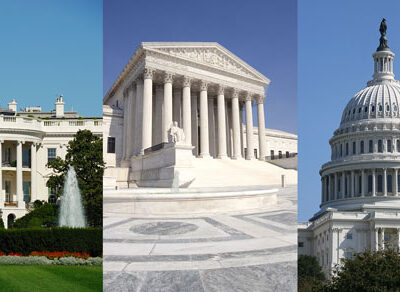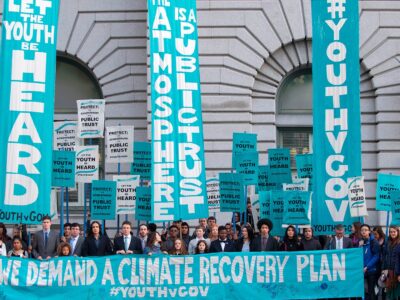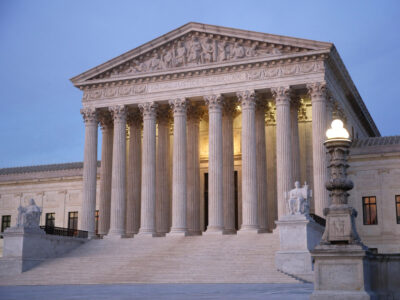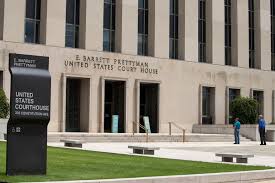Administrative Law
The Unique Legal Context of EPA Methane Regulations
Three separate congressional actions intersect to support the regulations.
The government’s efforts to control methane have followed a complicated path, involving three different congressional actions: section 111 of the Clean Air Act, which allows EPA to regulate emissions of greenhouse gases; a congressional override of an earlier regulatory action; and a newer statute that creates a fee on methane emissions. The upshot is to …
Continue reading “The Unique Legal Context of EPA Methane Regulations”
CONTINUE READINGPower Play: The Effects of Overruling Chevron
Who will win and who will lose if Chevron is overruled?
Next week, the Supreme Court will hear oral arguments about whether to overrule the Chevron doctrine. That doctrine allows administrative agencies that implement statutes to resolve ambiguities in those statutes. Overruling the doctrine would shift that power to courts. Institutionally, then, judges would be the big winners, with more sway over how laws are implemented. …
Continue reading “Power Play: The Effects of Overruling Chevron”
CONTINUE READINGJudicial Activism and Climate Change: An Unhealthy Combination
The trial judge in the Juliana case won’t give up, no matter what higher courts say..
An Oregon federal judge has convinced herself that climate change is a constitutional issue. After what promises to be a lengthy trial, Judge Aiken plans to decide whether U.S. energy policy passes constitutional muster. While I have no doubts about her sincerity and good intentions, her opinion itself shows why her courtroom is not the …
Continue reading “Judicial Activism and Climate Change: An Unhealthy Combination”
CONTINUE READINGThe U.S. Supreme Court & Environmental Law in 2024
Numerous Key Environmental Issues and Doctrines Will Confront the Justices This Year
As we begin 2024, it’s useful to identify and assess the many environmental issues that the U.S. Supreme Court has agreed to decide this year. It seems likely that the conservative majority of the justices will erode or, perhaps, dramatically jettison longstanding principles of environmental law and policy in the coming months. Summarized below are …
Continue reading “The U.S. Supreme Court & Environmental Law in 2024”
CONTINUE READINGMore Thrills and Chills Ahead! What to Expect in 2024
Here are the key events that will shape climate and energy policy.
We will face some important forks in the road in 2024 in terms of environmental law. Here are some of the upcoming forks. Who will be President in 2025? You probably don’t need reminding that 2024 is an election year. At this point, the election seems likely to be a replay of Biden versus Trump. …
Continue reading “More Thrills and Chills Ahead! What to Expect in 2024”
CONTINUE READINGReviewing Agency Indecision
The Third Circuit straightens out a quirk in FERC law, to the benefit of renewable energy.
A case decided by the Third Circuit on Dec. 1 is important for two reasons. It clarifies a puzzling procedural rule applying to the Federal Energy Regulatory Commission (FERC). And it upholds an important policy shift regarding renewable energy by the country’s largest grid operator. Since you’re probably more interested in the second point than …
Continue reading “Reviewing Agency Indecision”
CONTINUE READINGReviewing Agency Indecision
The Third Circuit straightens out a quirk in FERC law, to the benefit of renewable energy.
A case decided by the Third Circuit last week is important for two reasons. It clarifies an important procedural issue applying to the Federal Energy Regulatory Commission (FERC). And it upholds an important policy shift regarding renewable energy by the country’s largest grid operator. Since you’re probably more interested in the second point than the …
Continue reading “Reviewing Agency Indecision”
CONTINUE READINGThe Mystery of the Missing Stay Order
Why is the Supreme Court waiting for weeks to dispose of a demand for extraordinary intervention in a routine situation?
The steel industry applied for Supreme Court intervention on what they claimed was an urgent issue of vast national importance. Chief Justice Roberts requested an immediate government response. That was six weeks ago. Since then . . . crickets. No doubt you’re on the edge of your seat, wondering about the impending crisis facing the …
Continue reading “The Mystery of the Missing Stay Order”
CONTINUE READINGCalifornia Enacts Major Water Law Reform Legislation–But More Changes Are Needed
New law explicitly authorizes State Water Board to require water users to verify their water rights
The California Legislature has enacted and Governor Gavin Newsom recently signed into law SB 389, an important water law reform measure authored by State Senator Ben Allen. California has one of the most antiquated and outdated water rights systems of any Western state. To put it bluntly, California currently faces a 21st century water supply …
Continue reading “California Enacts Major Water Law Reform Legislation–But More Changes Are Needed”
CONTINUE READINGReading the Tea Leaves: Biden’s and California’s Vehicle Regs at the D.C. Circuit
A leading environmental lawyer gives his perspective.
Transportation is now the source of 28% of U.S. greenhouse gas emissions, more than the electric power sector. The transportation sector is also a substantial source of nitrogen oxides and particulates, both of which are dangerous to human health. The Biden Administration has taken important regulatory actions bearing on these problems, with others in the …
Continue reading “Reading the Tea Leaves: Biden’s and California’s Vehicle Regs at the D.C. Circuit”
CONTINUE READING












